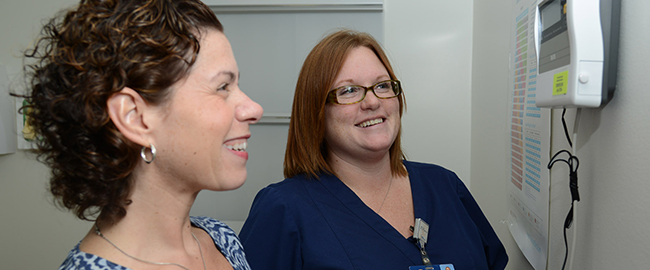Gastric Bypass in New Jersey
What is Gastric Bypass Surgery?
Gastric bypass, also called Roux-en-Y, is one of the most common weight loss surgeries.The surgeon creates a small pouch within the stomach and directly connects it to the small intestine. The remainder of the stomach is left in place.
Everything you eat will enter the small pouch and then bypass most of the stomach and the first section of the small intestine. Less food is absorbed into the body through this route.
Is Gastric Bypass Right for You?
- Body mass index (BMI) is 40 or higher
- BMI is 35 or higher, and you have a serious weight-related health condition such as type 2 diabetes, severe sleep apnea, or heart disease
- Weight causes physical limitations that interfere with family, recreation or work activities
Bariatric surgeons at Hackensack Meridian Health are highly experienced in gastric bypass. We can help you decide if this approach is right for you.
Advantages of Gastric Bypass Surgery
- Rapid weight loss
- Greatest weight loss
- Sustained weight loss
- Minimally invasive surgery with fewer risks and faster recovery
- Improves blood sugars and many weight-related problems
Diane’s Story
Potential Disadvantages of Gastric Bypass Surgery
- Vitamin deficiencies (preventable with supplements and a diet rich in nutrients)
- Bone calcium loss (preventable with supplements and a diet rich in nutrients)
- Anemia (preventable with supplements and a diet rich in nutrients)
- Potential for dumping syndrome – symptoms can include vomiting, nausea, weakness, sweating, faintness or diarrhea – when eating too much sugar or large amounts of food
- Bypassed portion of the stomach and small intestine cannot be seen easily using X-ray or endoscopy
Frequently Asked Questions
What is gastric bypass surgery and how does it work?
Gastric bypass, also known as Roux-en-Y, is a weight loss surgery where a surgeon creates a small pouch in the stomach and connects it directly to the small intestine. As a result, the food you eat bypasses most of the stomach and the first section of the small intestine, leading to less food being absorbed by the body.
Who is a good candidate for gastric bypass surgery?
You may be a candidate for gastric bypass if you have:
- A Body Mass Index (BMI) of 40 or higher.
- A BMI of 35 or higher along with a serious weight-related health condition such as type 2 diabetes, severe sleep apnea, or heart disease.
What are the main advantages and potential disadvantages of gastric bypass?
The primary advantages are rapid and sustained weight loss, and improvement in many weight-related health problems like high blood sugar. It is also a minimally invasive surgery. Potential disadvantages include the risk of vitamin and mineral deficiencies (which are preventable with supplements) and the possibility of "dumping syndrome" (nausea, weakness, diarrhea) if you eat too much sugar or large amounts of food.







